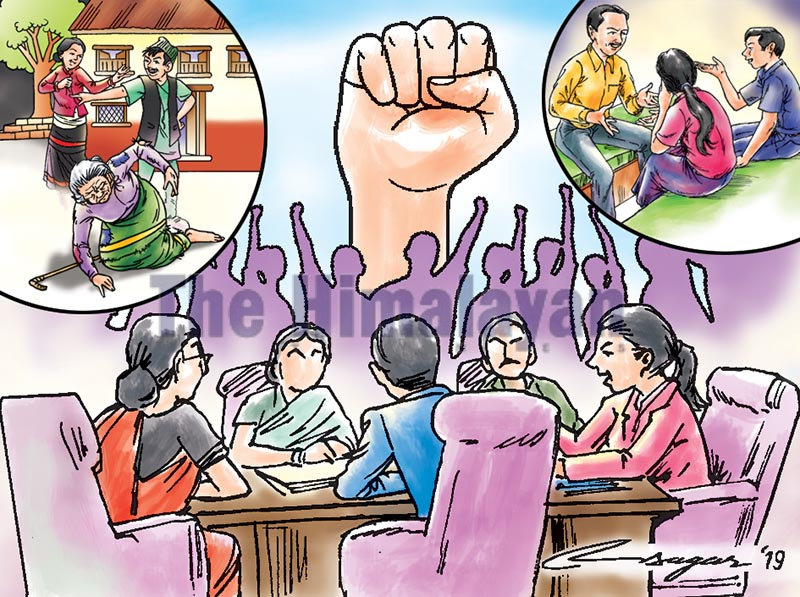Human rights monitoring panel formed in all districts
Kathmandu, April 30
Joint Human Rights Situation Monitoring committees have been formed in all 77 districts of the country to carry out monitoring of human rights situation during the adverse situation created by COVID-19 pandemic.
The committee comprises representatives from the National Human Rights Commission, Nepal Bar Association, Federation of Nepali Journalists and NGO Federation of Nepal.
Issuing a press release today, the rights body said high level, central level and provincial level committees had been formed.
According to the NHRC, the committees were monitoring the overall rights situation with special focus on the actions taken by the government to combat COVID-19, arrangement of medical treatment for COVID-19 and regular patients, consumer rights, freedom of expression, access to the judicial administration and citizens’ duties, among others.
The NHRC said the committee had already started functioning and would submit its report to the government along with suggestions. The rights bodies have repeatedly called upon the government to ensure that human right is at the centre of their emergency response to the novel coronavirus pandemic.
Even as cases of COVID-19 are increasing at an alarming rate, the government has yet to take effective measures aligned with human rights standards to safeguard people, particularly the vulnerable and marginalised, read the release.
Meanwhile, the NHRC has called on the government to ensure protection of the rights of jailbirds, students and migrant workers. It had conducted monitoring of the human rights situation of detainees and prisoners in detention centres and the prisons in Kathmandu and Lalitpur earlier this week.
The monitoring team led by NHRC member Sudip Pathak found prisons and detention centres not implementing mandatory social distancing due to lack of adequate space.
The Sundhara-based Central jail is crammed with 3,164 detainees and prisoners against its capacity of 1,250. However, there was access to sanitation facility, health check-up, sanitiser, water supply and other measures against the spread of COVID-19.
“Though no case of COVID-19 has been detected in prisons so far, they are highly vulnerable to infection in all 72 prisons across the country due to their dilapidated infrastructure and poor sanitation,” the NHRC said.
It warned many Nepali migrants were facing problem of livelihood as they had been rendered jobless due to COVID-19 and were prone to the pandemic.
“Nepali trainees and students in various countries, including Bangladesh and Qatar, have been stranded and are facing difficulties. The NHRC has received complaints through telephone, email and information disseminated by mass media. Thus, we draw the attention of the government, especially the ministries of foreign affairs, health and population, and labour, employment and social security to resolve these problems in a human rights-friendly manner,” it said.
A version of this article appears in e-paper on May 1, 2020 of The Himalayan Times.






